Last Updated: 4 months ago
Today, we’re talking about the ways cat asks for help.
Unfortunately, cats are just so good at hiding their pain that owners tend to notice it when the cat’s condition worsens significantly.
Below, we’ll take a look at seven different ways your cat reaches out to you for assistance, along with what they’re trying to tell you.
Just keep on reading.
7 Ways Cat Asks For Help
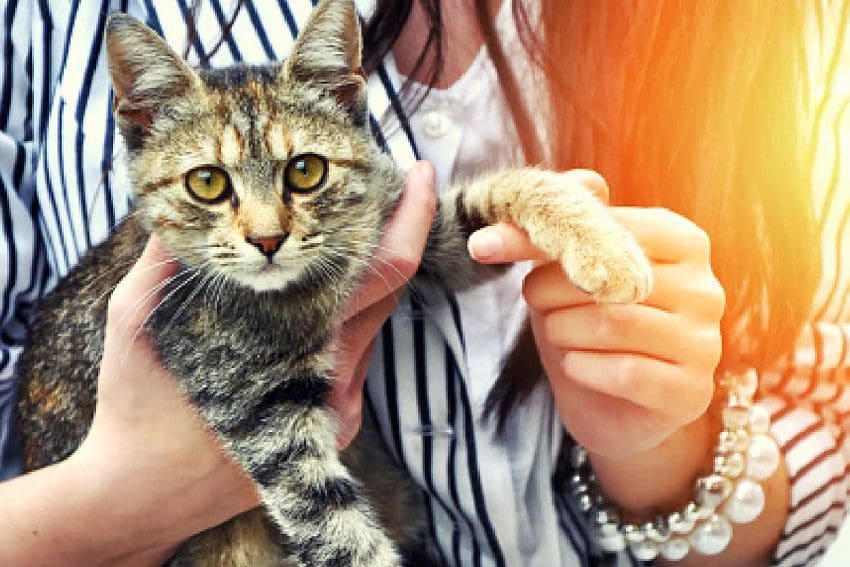
Recently, I had to take one of the outdoor mother cats to the vet because her leg muscles were twitching and she was ignoring her kittens.
It turned out that she had the beginning of milk fever and a full bladder due to a blocked urethra.
The previous days, I didn’t see anything to indicate that the mother cat was so unwell. She was eating well, nursing her kittens, and going about her business as usual.
Fortunately, the cat recovered quickly after the vet gave her shots, but it could have been a life-threatening situation if I hadn’t acted so quickly.
This incident showed me how important it is to look for the subtle ways cats ask for help. Let’s see the most common ones.
1. Inappropriate Urination
Have you ever caught your cat peeing outside the litter box? It’s such a common problem that many owners don’t pay much attention to it.
They consider it a behavior issue and think that their cat is jealous, mad, or trying to get something back.
However, peeing outside of the litter box is one of the ways cats ask for help. It’s not something you should ignore or try to fix without talking to a vet first.
Urinary tract infections, bladder stones, kidney stones, and constipation can make it painful for your cat to use the litter box.
Since the cat associates the pain with the litter box, they find another spot to urinate. Moreover, cats are clean creatures and don’t like to leave a mess in the house just to spite you.
Instead, they might pee on your things to attract your attention to the problem in the hopes that you’ll do something about the pain.
I’ve also heard about cats who peed blood in the bath or on the toilet to attract their owner’s attention.
So, if your cat starts leaving wet puddles around the house, it’s time to go to the vet.
Even if your cat is healthy, there’s a reason why they are avoiding the litter box.
It might be the stress of introducing a new pet, sudden changes in their daily routine, or tension in the house.
2. Insistent Meowing
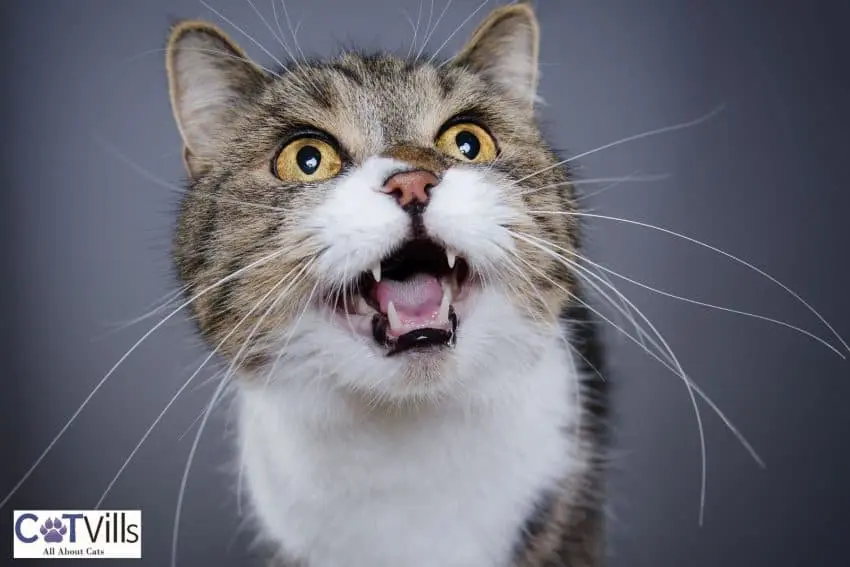
Do you know that adult cats don’t meow at each other? Cats use their voices to communicate with humans, just like kittens do with their mothers.
That’s why our cats meow when they need more attention, when they’re hungry, or when they want to express their opinion.
However, your cat’s meow is different depending on the circumstances. If you listen carefully to your cat, you’ll pick up on the subtle differences I’m talking about.
For example, when they’re hungry, cats use a sound that resembles a crying baby to make you get up and feed them.
If your cat is a hunter, they’ve got another unique meow to announce that they’re bringing you a gift and want you to let them inside.
While it’s normal for some cat breeds to be chatty, any excessive meowing or vocalization might be a cry for help.
Many diseases can cause increased hunger, pain, or chronic discomfort. A distress cry is also quite different from your cat’s usual meowing or chirping.
It’s hard to confuse it with anything else because your cat sounds scared and agitated. Cats use such howls to let you know that they’re in great pain, stuck somewhere, can’t get out, or are under attack from another animal.
Pregnant cats might also sound distressed right before they give birth. If you notice any sudden change in your cat’s meowing or intensity, it might be a way your cat asks for help.
3. Third Eyelid
Do you know that cats have a third eyelid that acts as a windshield wiper to keep debris away from the eyes?
It’s usually hidden, but you can see it protruding from the bottom of the eye when you pull the upper lid or when your cat is very relaxed.
If you can see the third eyelid when your cat is alert, it’s usually a sign that your cat is unwell.
Your kitty might have a high fever, stomach discomfort, a viral or bacterial infection, or parasites.
If only one eye is affected, it could be conjunctivitis, inflammation, or a foreign object.
In either case, you should take your cat to the vet if you notice that their third eyelid is visible and your cat seems lethargic.
4. Obsessive/Reserved Behavior
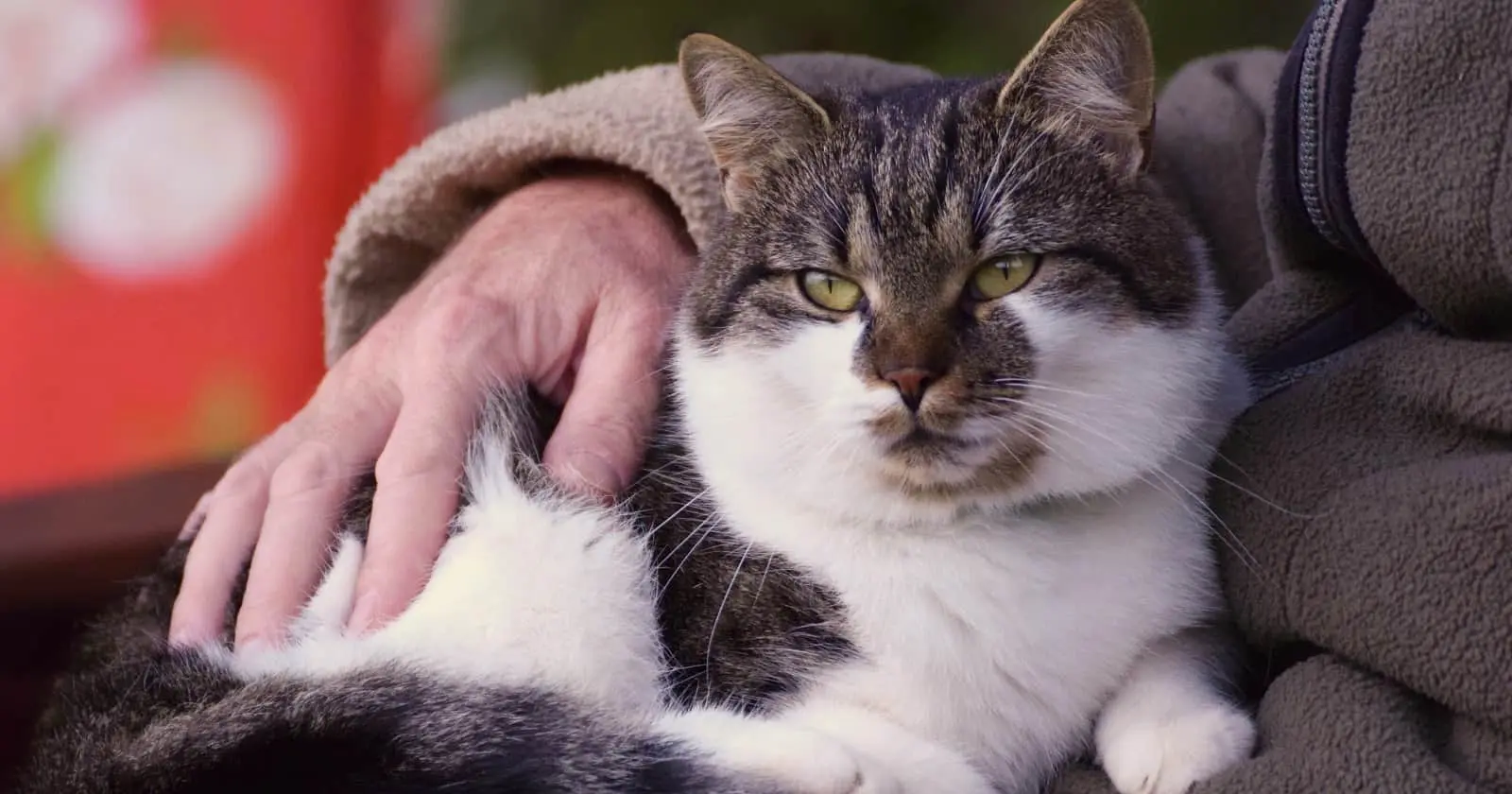
As a whole, cats are creatures of habit and rarely deviate from their usual patterns. Any sudden change might be a way for your feline to ask for help.
Some cats become obsessed with their owners when sick because they feel vulnerable and afraid.
Your kitty doesn’t know what’s happening and wants all the comfort they can get.
On the other hand, any affectionate cat that suddenly avoids your hands might be under the weather.
Imagine how you feel when you’re sick and don’t want other people around to witness your misery.
Some cats just don’t like to be held when they’re sick.
5. A Change In Grooming Habits
A healthy cat has a smooth and silky coat that they spend hours grooming every day.
When your cat’s fur becomes rough, dirty, or unkempt, it’s a clear sign that something is wrong.
No matter how lazy your cat is, they’ll never stop washing without a good reason.
Usually, if your cat isn’t grooming themselves, they’re either too sick to care for their fur or getting too old.
In either case, it’s a clear cry for help that requires your urgent attention.
6. Strange Drinking and Eating Habits
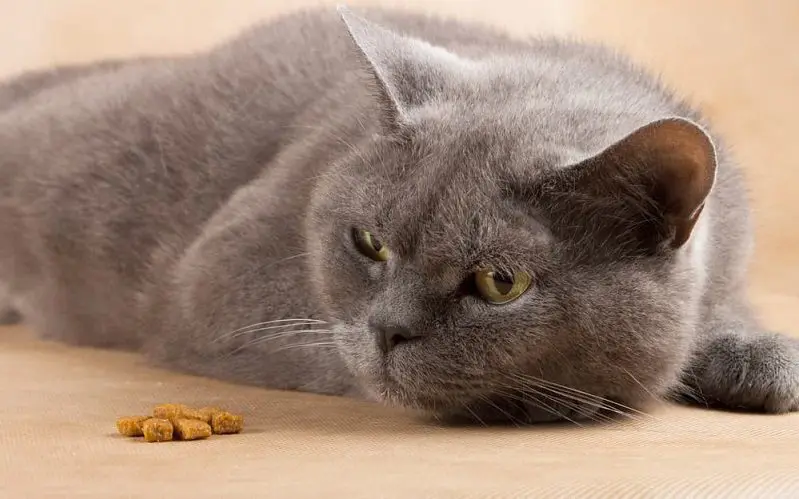
Cats can be picky eaters and refuse to eat even the most delicious wet food.
However, sometimes cats refuse food because they’re feeling nauseous and turn their noses up when you put food in the dish, no matter how hungry your kitty is.
Some cats might even eat inedible things to attract your attention when they’re bored, stressed, or ill.
Pica is a serious condition because your feline might swallow something sharp or get an intestinal blockage.
Changes in your cat’s drinking habits can also point to a medical problem. Increased thirst might be due to diabetes, kidney disease, or hyperthyroidism.
A cat that doesn’t drink enough water can also develop problems with the kidneys and get dehydrated.
Keep an eye on your feline’s water bowl. If you have to fill it more often than usual or your cat stops drinking water, you should take your kitty to the vet.
7. Aggression
I’ve heard many stories about cats attacking their owners or the owner’s friends without any reason or warning.
While some breeds are aggressive, violent behavior isn’t random.
Usually, when cats are in great pain, they might lash out at the nearest person, even without provocation.
The aggression might also be due to another animal or object that your cat can’t reach, and they redirect their attack to the closest person or pet.
Stress, fear, territorial behavior, and maternal instinct can also turn the sweetest cat into a vicious predator.
But in most cases, aggression is the last resort cats use to show you that there’s something wrong and that they desperately need your help.
If you aren’t sure if your cat is sick or being a jerk, I recommend that you trust your gut.
If it’s telling you that something is wrong, you should take your cat to the vet. It might not be anything serious, but you’d be better safe than sorry.
Wrap-Up
In the subtle language of feline communication, understanding the different ways cats ask for help opens a door to deeper connection.
From gentle purrs to soulful gazes, our feline companions entrust us with their silent pleas.
By recognizing and responding to these cues, we strengthen the bond, creating a haven of trust and mutual understanding.
What do you think about these 7 ways cats ask for help? How do you know when your cat is feeling blue? Tell us in the comment section.
Resources:
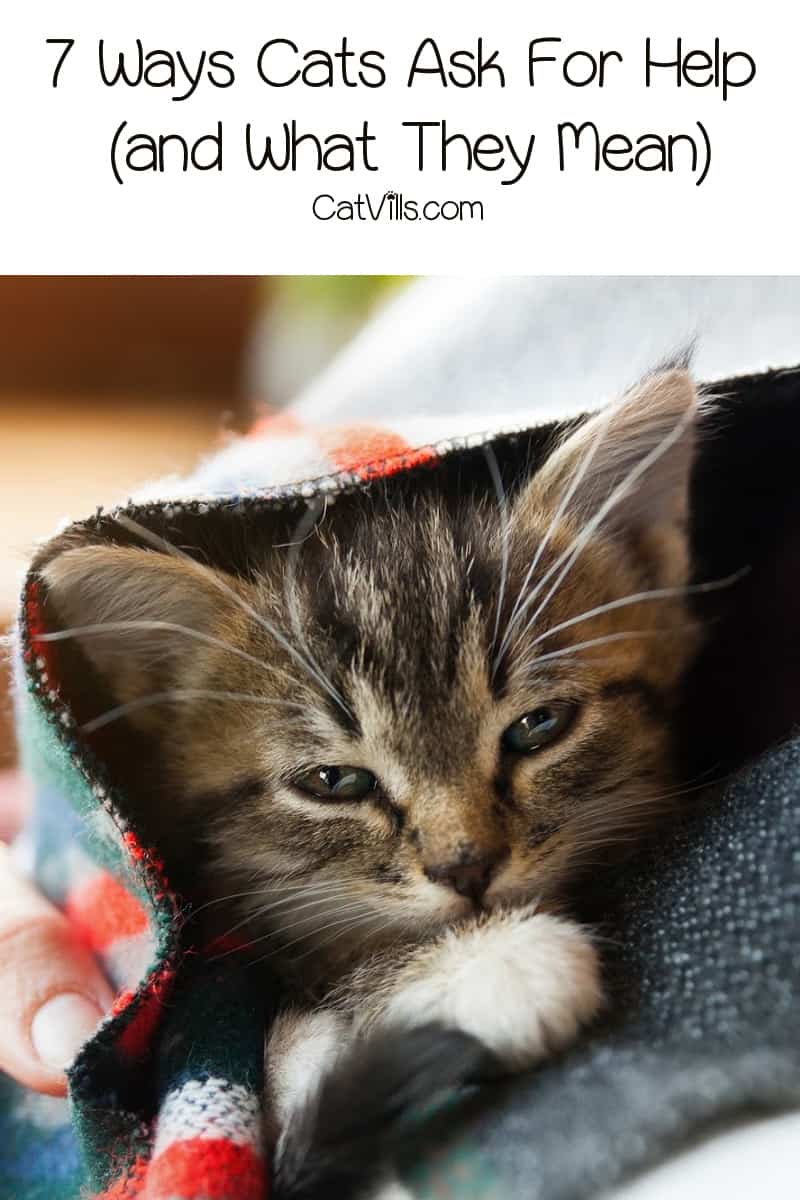

Olfa knows how to get things done and has a keen business sense that others admire. She’s always on the go, coming up with new ideas! Her ability to anticipate the needs of her readers and deliver information that they want is what makes CatVills such a success. She loves cuddling her cat Picaciu. He is her inspiration.
